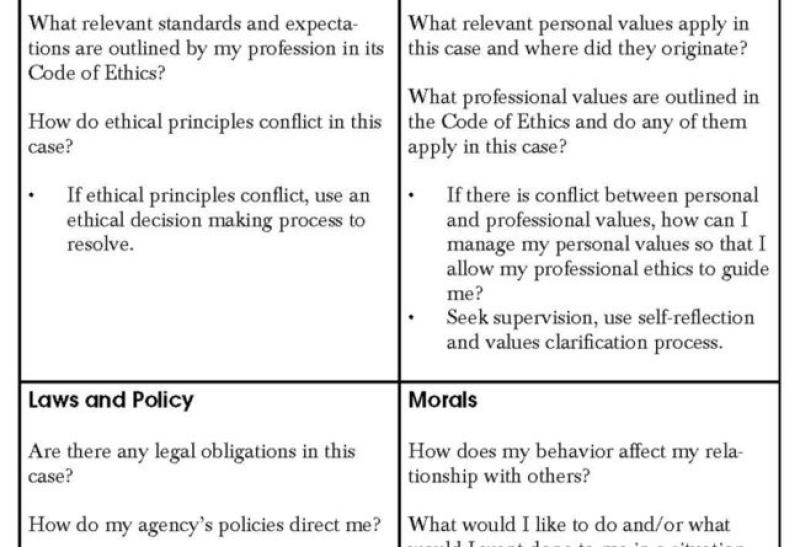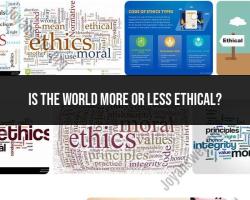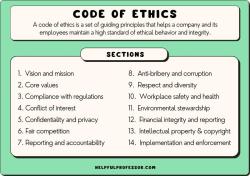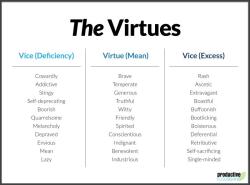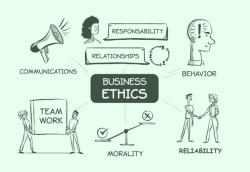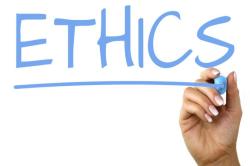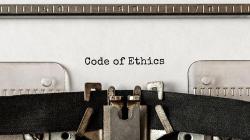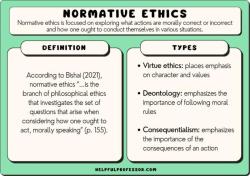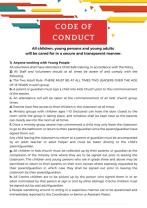What are some examples of ethical dilemmas in real life?
Ethical dilemmas are situations in which individuals face conflicting moral principles and are required to make difficult decisions. Real-life examples of ethical dilemmas can be found in various professional, personal, and societal contexts. Here are a few examples:
Medical Ethics:
- Allocation of Resources: In a hospital setting with limited resources, medical professionals may face the ethical dilemma of deciding how to allocate resources such as ventilators or organ transplants among patients.
Business Ethics:
- Whistleblowing: An employee discovers that their company is engaged in illegal or unethical practices. They face the dilemma of whether to report the wrongdoing (whistleblow), risking their job and potential retaliation, or remain silent.
Environmental Ethics:
- Corporate Pollution: Executives in a manufacturing company may face an ethical dilemma when deciding whether to prioritize environmental sustainability and reduce pollution, even if it means higher production costs and potentially affecting profitability.
Legal Ethics:
- Defense Attorney Dilemma: A defense attorney learns that their client is guilty of a crime but can still be legally defended. The attorney faces the ethical dilemma of upholding their duty to provide a zealous defense while knowing the client's guilt.
Technology and Privacy:
- Data Privacy: Companies that collect user data face ethical dilemmas regarding how that data is used, whether it's sold to third parties, or how much transparency is provided to users about data collection practices.
Personal Relationships:
- Loyalty vs. Truth: A person discovers that their close friend is involved in an affair. They face the ethical dilemma of whether to remain loyal to their friend and keep the secret or disclose the truth to the friend's partner.
Education:
- Cheating in Exams: A teacher discovers that a student has cheated on a crucial exam. The teacher faces the dilemma of whether to report the cheating, potentially affecting the student's academic future, or address the issue in a different way.
Journalism Ethics:
- Conflict of Interest: A journalist may face an ethical dilemma when reporting on a topic where they have a personal or financial interest, raising questions about their objectivity and journalistic integrity.
Global Issues:
- Refugee Crisis: Countries may face ethical dilemmas related to how they respond to a refugee crisis, balancing concerns about national security with humanitarian obligations.
Family Ethics:
- End-of-life decisions: Family members may encounter ethical dilemmas when deciding whether to continue life support for a terminally ill loved one, weighing the quality of life and the individual's wishes.
These examples illustrate the complexity of ethical decision-making in various aspects of life, where individuals must navigate conflicting values, principles, and responsibilities. The resolution of ethical dilemmas often requires careful consideration, ethical reasoning, and a commitment to moral principles.
How do socio-economic factors influence ethical dilemmas in resource allocation in healthcare?
The influence of socio-economic factors on ethical dilemmas in resource allocation in healthcare is a complex and multifaceted issue. Here are some key ways these factors can play a role:
1. Unequal access to healthcare:
- Income and insurance: Individuals with lower income and inadequate or no health insurance may face difficulties accessing essential healthcare services, including life-saving interventions, preventive care, and treatment for chronic illnesses. This disparity can lead to ethical dilemmas when limited resources need to be prioritized.
- Geographic location: People living in under-resourced or remote areas may have limited access to specialized healthcare facilities and personnel. This can exacerbate existing disparities and force decisions about who receives potentially life-saving treatment when resources are scarce.
2. Power and social influence:
- Social status and privilege: Individuals with higher social status and access to influential networks may have greater ability to influence resource allocation decisions in their favor. This can raise concerns about fairness and justice in the distribution of healthcare resources.
- Discrimination and implicit bias: Unconscious biases based on factors like race, ethnicity, gender, or sexual orientation can influence healthcare professionals' decisions, potentially leading to unequal access to resources for marginalized groups.
3. Cost-effectiveness considerations:
- Resource scarcity: Healthcare systems often face constraints in terms of funding and availability of medical equipment and technology. This can lead to ethical dilemmas when prioritizing interventions based on their cost-effectiveness, which can disadvantage treatments for complex or less common conditions.
- Age and disability: Decisions about resource allocation might consider factors like age or disability, potentially raising concerns about ageism or discrimination against individuals with disabilities.
4. Ethical frameworks and policy implications:
- Utilitarian perspective: This approach emphasizes maximizing overall societal benefit, which can lead to prioritizing interventions that benefit a larger number of people or result in greater cost savings. However, it might neglect the value of individual lives and prioritize resource allocation for those with higher predicted life expectancy.
- Justice-based approaches: These perspectives focus on fair and equitable distribution of resources, which can challenge decisions based solely on cost-effectiveness or potential societal benefits. However, implementing clear and consistent criteria for fairness in resource allocation can be challenging.
In conclusion, socio-economic factors significantly influence ethical dilemmas in resource allocation in healthcare. Addressing these challenges requires ongoing discussions around ensuring equitable access to healthcare, combating implicit bias, developing fair allocation frameworks, and considering ethical principles alongside cost-effectiveness considerations.
I hope this gives you a starting point for exploring this complex and important topic. Feel free to ask any further questions you might have.
